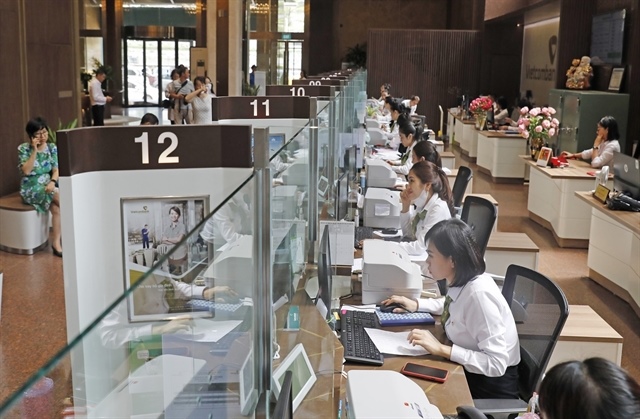Sale of stocks slows, number of equitized SOEs falls behind target
Sale of stocks slows, number of equitized SOEs falls behind target
It is highly possible that the plan to equitize 289 state-owned enterprises (SOEs) in 2015 could fail once again.

Regarding the IPO (initial public offering), a report from the Hanoi Stock Exchange showed that of the 566 million shares on sale this year, only 184 million shares have been sold, meaning that 67 percent of shares have not sold.
Meanwhile, at the HCM City Stock Exchange (HOSE), 11 out of 19 share auctions were canceled because there were few investors. EVN-Vinacomin, with charter capital of VND6.8 trillion, could sell only 1.2 million shares, or 0.51 percent of shares offered on April 16.
Vinacomin put 46 million shares into auction at the starting price of VND10,500 per share, but only 2.8 percent were sold at the first auction and 1 percent at the second auction held one month later.
As for the disinvestment, in the first six months of the year, VND7.522 trillion worth of capital were withdrawn by SOEs.
State-owned economic groups and general corporations took back VND3.368 trillion worth of capital they had poured into real estate, securities, banking, insurance sectors and investment funds.
Minister Nguyen Van Nen, at a meeting held by the government office on September 1, said that about 200 enterprises would complete equitization this year.
If so, the yearly equitization target could fail once again in 2015.
Analysts said the slow equitization cannot be blamed on the gloomy stock market. Though the stock market has not yet regained the peaks it once reached in the past, it has recovered strongly this year.
The VN Index in the first six months of the year increased by 9 percent, while trading value rose by 9.3 percent compared with the same period last year.
An SSC (State Securities Commission) report showed that the total capital mobilized through the stock market was VND96 trillion, including VND82 trillion via government bonds and VND14 trillion via stocks.
An analyst commented that shares did not sell because the enterprises were unprofitable, and therefore the ‘goods’ offered were unattractive to investors. He also thinks that investors hesitated to buy shares because of the modest proportion of shares the State planned to sell.
The State plans to sell shares in large bulk in an effort to speed up equitization. However, analysts warned that the new policy may pave the way for embezzlement as shares may be sold cheaply, which would bring losses to the State.



























